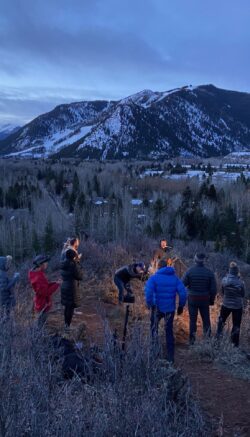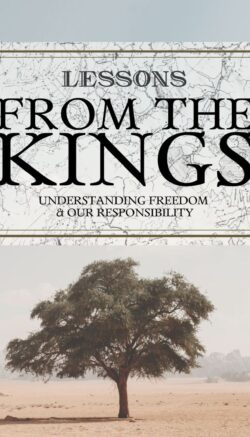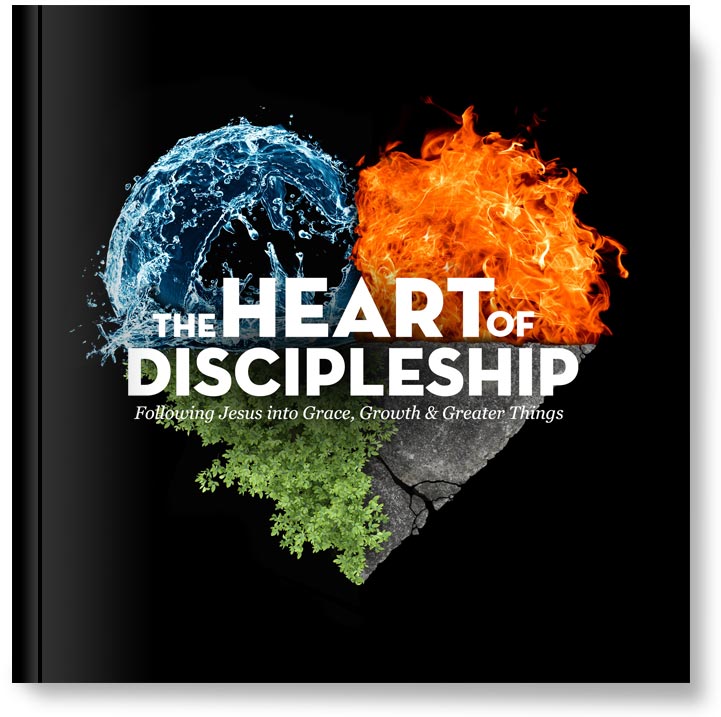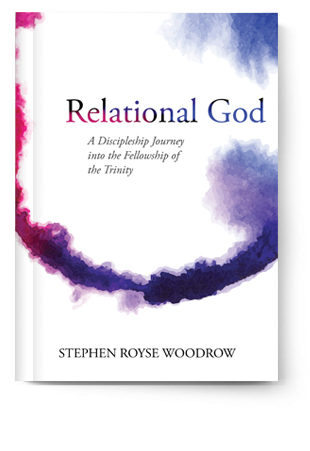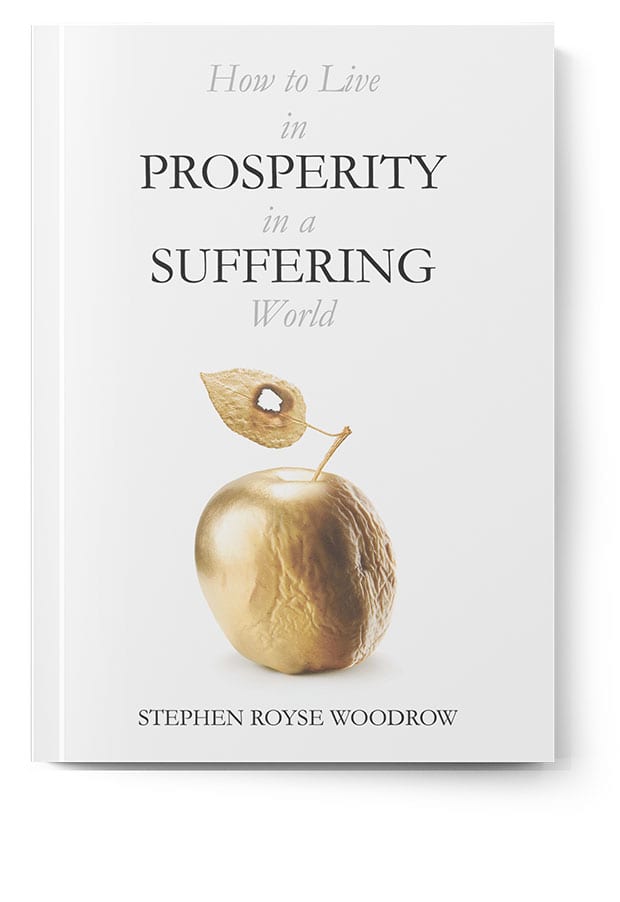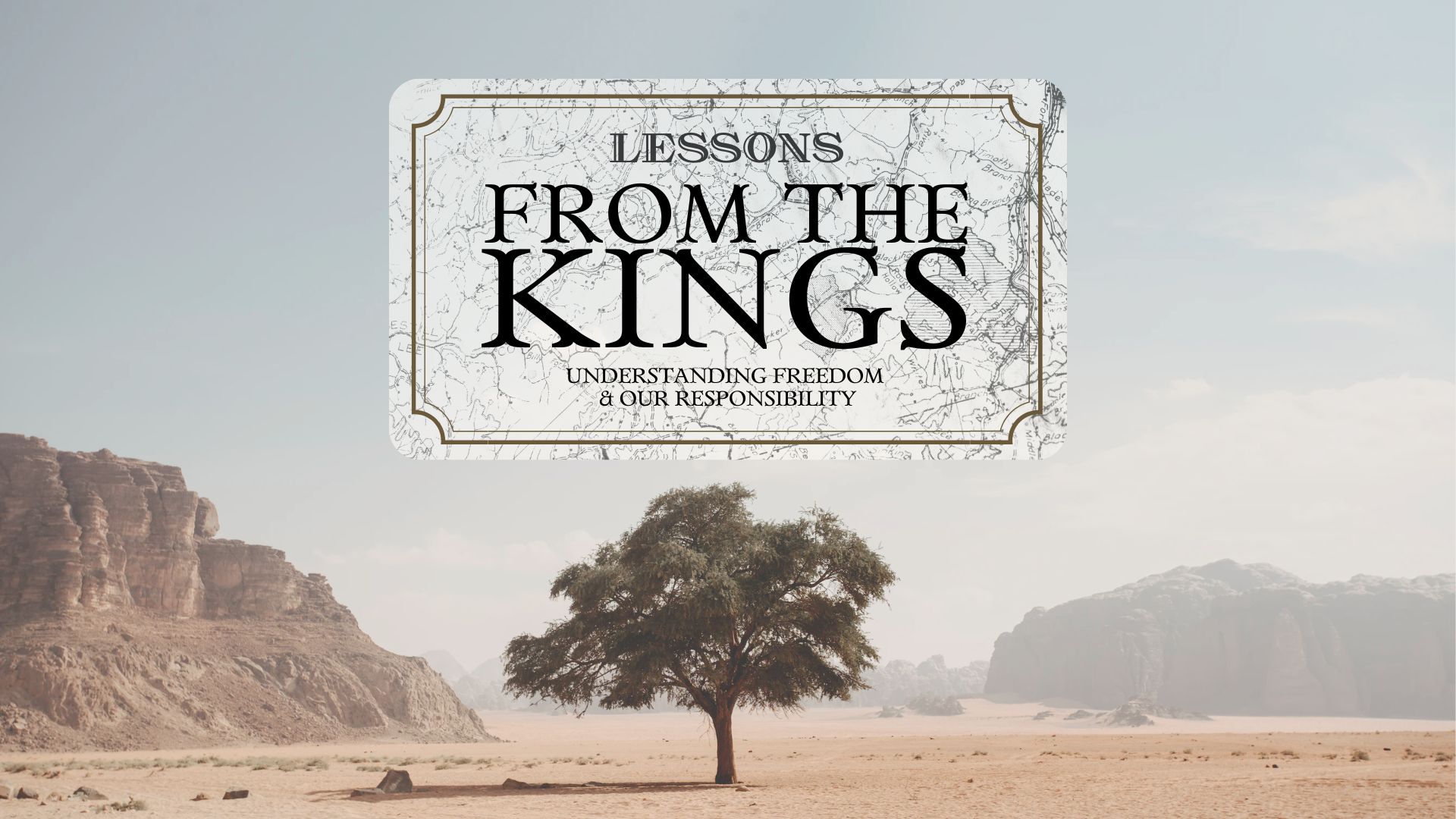 First, what is your standard of living? Do you have a standard, what or who do you look to for that?
First, what is your standard of living? Do you have a standard, what or who do you look to for that?
How are we defining our standard of living and who is defining it for us?
Is the world or the Lord defining your standard of living? This is not just socio-economic issues, but more important the standard for life, how shall we live.
Do we trust the Lord with our standard of living? Oh we need to radical raise our standard of living, but not the way of the world. The world’s lie is that money, power and prestige defines your standard of living and that it is satisfying for the soul and good for the world.
Probably no one had more power, fame and possessions and peace and comfort than Solomon, he had all the world could offer, so we can learn a lot from him.
We today are the most affluent people to walk on the earth, but are we the most joyful and fulfilled?
“In 2006 at an international conference i Central Asia, a Korean leader commented that, with increasing economic standards, church growth in South Korea and in the cities of China had slowed as Christians were drawn into the quest for more security and a higher standard of living…Others commented on a similar phenomenon in their own countries.”
“There is strong evidence that lifestyle changes were a key factor in the expansion of the church in the Roman empire, it was Christ-lke lifestyle that attracted the nations…’In an age of bondage, of increasing disorder, of a deepening gulf between privileged people and poor people, of life-disfiguring addictions and compulsions, the church was growing because it and its members had a freedom and fullness of life in Christ that could not be hid…This newness in the practices of its corporate life and the behavior of its members towards non-members was intriguing, inviting, question-posing.” (Kings, John Olley, BST, A. Kreider)
LESSON TEN
Verses: 1 Kings 2:1-4; 3:1-28; 4: 1-34; Proverbs 3:9-10, 11:4, 22:1; Ecclesiastes 5:8-6:2; 12:13-14; Matthew 6:19-24
Wealth and comfort work against dependence upon God and deep faith development.
First of all, we are all wealthy and relatively comfortable in comparison to the majority of the world.
Secondly, wealth is not bad, what is bad is the love of wealth and the attachments we can develop to it.
What is the lesson about comfort in our lives and faith development? Wealth and comfort work against heart dependence upon God and deep faith development.
1 Kings 2:1-4, David’s shares with Solomon, his rich faith inheritance which was sadly squandered.
What can we learn from David’s spiritual formation at a young age versus Solomons?
David was living in obscurity and Solomon grew up in the palace.
David grew up with a sling in the field, Solomon grew up with servants and splendor
David had to fight off lions and bears and learn to be a warrior, Solomon grew up in comfort, intellect and peace time.
David had to learn to trust the Lord early on, Solomon had God visit him in dreams
David got God’s attention early on without favor from dad and family, Solomon reaped the favor of God because of his father’s faithfulness.
Wealth isolates, so extra work has to be done to not let it naturally take over
“…studies show that people who have chased power and achievement in their professional lives tend to be unhappier after retirement than people who did not.” (From Strength to Strength, Arthur Brooks)
Matthew 6:19-24,
19 “Do not lay up for yourselves treasures on earth, where moth and rust destroy and where thieves break in and steal, 20 but lay up for yourselves treasures in heaven, where neither moth nor rust destroys and where thieves do not break in and steal. 21 For where your treasure is, there your heart will be also. 22 “The eye is the lamp of the body. So, if your eye is healthy, your whole body will be full of light, 23 but if your eye is bad, your whole body will be full of darkness. If then the light in you is darkness, how great is the darkness! 24 “No one can serve two masters, for either he will hate the one and love the other, or he will be devoted to the one and despise the other. You cannot serve God and money.
So clearly my stuff is trying to be my treasure. Which is consuming our thoughts and affection?
Also, are we clear about what it means to lay treasure up in heaven? We would love to discuss that with you further. One big key, is Jesus’ emphasis on the eye being the lamp of the body – what are our eyes focusing on – here is insight into the consumer materialism of the west and media.
Jesus couldn’t be any clearer, our treasure controls our heart! What would people say Steve is most excited about – that’s probably my treasure.
Is Jesus our treasure, the King of our heart? Are we regularly wrestling with that questions even?
So are we pursuing a higher standard of living, the highest where Jesus is our treasure? Call people to Him. Oh the glorious riches of the Gospel.
LESSON ELEVEN
Verses: 1 Kings 3:1-28; Ecclesiastes 5:1, 1:18, 12:13-14; Proverbs 1:7; Matthew 16:26
Wisdom and knowledge, even of God, leads to vexation and purposelessness without the spiritual formation of the fear and joy of the Lord.
1 Kings 3:1-28 Solomon asks for wisdom
1 Kings 3:1-4, the people were still offering sacrifices at the high places since there was no temple, and Solomon loved the Lord and followed David’s statues except that he offered sacrifices and burned incenses on the high places, Gibeon, the most important high place; it was the place of the tabernacle and the ancient bronze altar, 1 Chron 21:29, 2 Ch 1:2-6) They must have been salvaged after the Philistines destroyed shiloh 1 Sam 7:1
Eccl – Solomon, vanity, loss of purpose in the midst of comfort and a lot of different “loves”, Ohh how we have lots of “loves” today, we throw that word around, I love skiing, etc Maybe this is how Solomon used the word love for God too!
1 Kings 3:3, an unusual choice of the word for love; (ahab) while this love appears here it reappears in ch 11 in relation to Solomons other great loves, foreign women, so how fragile this love of God was. – what does it mean to love God, since we use the word love to express feelings for trivial things as well. The main issue at heart is – is our love a result of the Spirit and love of God expressing itself as a fruit of the Spirit or just a product of our flesh?
Eccle 5:1, “Guard your steps when you go into the house of God. To draw near to listen is better than to offer the sacrifices of fools, for they do not know that they are doing evil.”
Below the surface, the lesson of Solomon, there is something more important than wisdom and wealth and even building wonderful worship facilities. leading to the NT teaching of Matthew 16:26
2 Chron 1:3, God’s tent of meeting at Gibeon
2 C 1:4 David brought up the ark to Jerusalem
2 C 1:5, bronze alter left in Gibeon
Read through Ecclesiastes:
Solomon had the knowledge and wisdom of God without the fear and joy of the Lord
Ecclesiastes 1:9, 14, 18; 3:11, 5:8-20, 10, 6:1-2, 11:5, 12:13-14
Solomon’s great learning, caused great vexation – state of being annoyed, frustrated, worried, so he could not enjoy in the end all the blessings, but lost the fear and joy of the Lord as he examined life under the Sun and saw there was only vanity – he was able to do what few worldly intellects are able to do and this is be honest with their soul.
Reading Ecclesiastes one does not get the impression that the writer was experiencing the joy of the Lord or even the fear of the Lord, but raw honest life under the sun consequences.
Ecclesiastes 1:18
“For in much wisdom is much vexation and he who increases knowledge increases sorrow.”
Proverbs 1:7
“The fear of the Lord is the beginning of knowledge; fools despise wisdom and instruction.”
Eccle 12:13-14
“The end of the matter; all has been heard. Fear God and keep his commandments, for this is the whole duty of man. For God will bring every deed into judgment with every secret thing, whether good or evil.”
We are either caught up in a curated self or being captivated by Jesus.
Matthew 16:26
“For what will it profit a man if he gains the whole world and forfeits his soul? Or what shall a man give in return for his soul?”
We have to believe Jesus was thinking about Solomon here not just for his great material wealth but for his great wisdom and knowledge.
As part of our pursuit of a higher standard of living are we pursuing the development of our soul beyond just gaining head knowledge to relational reverence and joy with the Lord?
LESSON TWELVE
Verses: 1 Kings 11:1-11; Genesis 2-3, 2 Cor. 6:14-7:1; 1 Cor. 7:39; Song of Solomon 8:4, 6;
Stepping outside God’s sacred and created order for marriage and sex numbs hearts to God, fractures families and nations and leads to all kinds of abominations.
Sacred roles and authority structure:
Genesis 2-3
There is the connection with Solomon all the way back to Adam who also failed at leading and protecting Eve into the goodness of God in the midst of deception. Solomon was given directly from God twice instructions on how remain in His favor, but just Adam, Solomon let not just one wife, but 700 and 300 concubines lead his heart away from God to the high places.
Shocking in 1 Kings how far off Solomon got and what he helped his wives facilitate.
1 Kings 11:2, Solomon clung to his wives in love, a selfish, possessive and lustful love rather than honor the Lord’s command. They felt like one in a thousand, rather than cherished, so their dedication to their gods rather than Solomon and his God.
The result of Solomon’s disregarding God’s command was a torn kingdom and generations of devastation and abominations that oppressed the people.
Solomon broke God’s command to marry only in the Lord, in the covenant
2 Corinthians 6:14- 7:1
Marry only in the Lord, don’t be unequally yoked. Surely as Paul is writing these things he is thinking of King Solomon and his foreign wives.
1 Corinthians 7:39
remarry only in the Lord
Learn from Solomon the results of awakening love before the time:
Song of Solomon 8:4, 6
“I adjure you, O daughters of Jerusalem, that you not stir up or awaken love until it pleases…Set me as a seal upon your heart, as a seal upon your arm, for love is strong as death, jealousy is fierce as the grave. Its flashes are flashes of fire, the very flame of the Lord.”
Even with all of Solomon’s wives and concubines his heart knew it was created for a union of love with only one women, but when love gets awakened, when consummation occurs before covenant or physical intimacy occurs before sacred union love is corrupted and is captive to the lusts of the world rather than the favor of the Lord.
In our pursuit of a higher standard of living are we obeying God’s clear laws related to sex and marriage or are we like Solomon letting the world set our standard and lead our love of the Lord away?
1195 I. בָּמָה (bā·mā(h)): n.fem.; ≡ Str 1116, 1181; TWOT 253—1. LN 1.46–1.50 hill, height, i.e., an elevated place (Dt 32:13; 2Sa 1:19, 25; 22:34; Ps 18:34[EB 33]; Isa 58:14; Hab 3:19), note: in some contexts there are associative meanings of safety or nobility; 2. LN 53.16–53.27 high place, worship center, i.e., a place usually in an elevated land formation, usually associated as a pagan worship center with an altar for presenting gifts and sacrifices (Lev 26:30; Nu 33:52; 1Sa 9:12); 3. LN 6.96–6.101 shrine, i.e., a pagan worship site, suggesting a small sacred mound at the gate area (2Ki 23:8), note: see WBC 13:330 for other explanations; 4. LN 14.17–14.35 wave crest, i.e., top part of a wave or open-water swell (Job 9:8); 5. LN 87.19–87.57 unit: עַל בָּמָה עָב (ʿǎl bā·mā(h)
Swanson, J. (1997). In Dictionary of Biblical Languages with Semantic Domains : Hebrew (Old Testament) (electronic ed.). Logos Research Systems, Inc.
With no central worship site, the people “were still sacrificing at the high places.” These shrines were located at slight elevations throughout the land, were quite often fairly elaborate in design and construction, and were roundly denounced by the author of 1, 2 Kings after the temple was built. For now this practice is excusable, but Solomon’s long-term commitment to the high places is contrary to God’s law and David’s example.
3:4–5 Solomon demonstrates his love for the Lord by journeying approximately seven miles northeastward to Gibeon and offering burnt offerings there. This text does not say why Gibeon was the most important high place, but 2 Chr 1:5–6 explains that while David had brought the ark to Jerusalem, the Mosaic tabernacle and “the bronze altar that Bezalel … had made” were still in Gibeon. The very necessity of going more than one place to use the traditional implements of worship underscores the need for a central sanctuary. God seems pleased at Solomon’s piety, for the Lord appears in a dream and tells the king to ask for whatever he wants.
This offer amounts to a reaffirmation of the Davidic Covenant. Solomon has obeyed God, as David commanded in 2:2–4. Now the Lord decides to bless David’s son. This verse also indicates that God approves of Solomon’s rise to power, the issue left unresolved after chap. 2.
House, P. R. (1995). 1, 2 Kings (Vol. 8, p. 109). Broadman & Holman Publishers.
High places (Heb. bāmāh, usually plural bāmôt); not necessarily connected with Ugar. bmt, cf. Akkad. bamtu, ‘open country’. These were local cult or sacred places, often in the form of a flat rock-hewn platform with an altar or place of sacrifice. Sometimes they were located on a height (cf. Num. 22:41; 1 Sam. 9:13), as those found at Megiddo and Arad, while others were on low ground within towns (2 Kgs 17:29, Jerusalem, Hazor, Dan) or even in a valley (Jer. 7:31). The term appears to have been used for different types of local shrines used for various purposes. While some may have originally been Canaanite shrines taken over after the Israelite conquest and used as places for sacrifice and festivals (1 Sam. 9; 10:5), others seem to have been used for the worship of Yahweh (2 Chr. 33:17). The tabernacle and true altar were located at first at the ‘Great High Place’ at Gibeon (1 Kgs 3; 2 Chr. 1).
Most high places were primarily rustic or small ‘gate’-shrines (Tirzah and Dan) furnished with idols (2 Chr. 33:19), Asherah-poles, standing stones, or altars dedicated to pagan deities (11:7). Some may have held ‘tent’ shrines in the old patriarchal tradition (2 Kgs 21:3), or been furnished with small buildings or houses (sometimes interpreted as ‘temples’) for keeping sacred vessels, thus serving a more public function. Any association with a ritual which might include human sacrifice is not well attested (but cf. Jer. 19:5; 32:35).
These places posed a threat to the pure worship of Yahweh, and after the building of the central temple in Jerusalem most references to them are pejorative, for they represented conflicting loyalty and competing allegiance. Israelites were expressly forbidden to use such places in their worship of God (Deut. 7:5; 12:3), who might, however, sanction the erection and use of special altars there (Exod. 20:24; Deut. 12:6–14). Beginning with Solomon’s reign, the toleration of high places led to syncretistic worship and apostasy. So the ‘high place’ became synonymous with an abomination, and its use or abuse is noted by the historian and marked out as condemning a sinful king (e.g. 2 Kgs 17:7–18; 23:4–25). High places were set up by other kings: e.g. Mesha‘ of Moab ‘built a high place for the God Chemosh in Qarḥoh’ (Moabite stone, line 3).5
Wiseman, D. J. (1993). 1 and 2 Kings: an introduction and commentary (Vol. 9, pp. 90–91). InterVarsity Press.
0
